Summary / TL;DR
The article explains how to find the best keywords for SEO by using a strategic, data-driven approach. It outlines the importance of understanding search intent, keyword relevance, competition, and search volume to improve content visibility in search results. The guide recommends using tools like Google Keyword Planner, Google Trends, SEMrush, and Moz to generate, analyse and select keywords. It also highlights the need to balance long-tail and seed keywords, structure keywords into topical groups, and continuously refine keyword lists based on trends and competitor analysis to maintain and improve SEO performance.
Optimising website content with relevant keywords is a crucial SEO ranking factor, and understanding the keyword difficulty score is vital to this process.
However, a challenge arises when identifying and selecting the optimal keywords for your SEO strategy, which is where the best keyword research tools come into play. While keyword research is the solution to this concern, many factors come into play, including search volume, intent, competition, and more.

These factors guide your content direction but also assist in discovering search terms and phrases relevant to your business niche, enhancing your visibility in Google search results. Additionally, they will make your website more searchable and visible on the SERPs.
Indeed, keyword research can be time-consuming, requiring considerable effort to compile and refine keyword lists, a process that can be streamlined with practical SEO keyword tools. That’s why we’ve come forward with this informative guide, hoping to simplify your task while building the foundation of your content development and SEO strategy.
Here, we’ll be talking about keyword research and the milestones of your keyword research journey. But before that, let’s understand the basic concept of keywords in SEO.
What Are SEO Keywords?
Keywords, which can include multiple keywords, are terms and phrases embedded in your web content, enabling searchers to locate your website effortlessly via search engines like Google. They are one of the primary elements of SEO that assist your site in achieving top ranking on the search engine results pages (SERPs).
You’ll need to understand the user’s search intent and know how they look for products, services, or the information you offer.
Hence, it’s crucial to understand the phrases and terms they use to search on Google. This will allow you to prioritise keywords effectively and create a list of keywords for running a successful online marketing campaign.
However, finding the right keywords for your SEO is a challenging process and getting it right involves many trials and errors, even for marketers who have undergone SEO training. Here’s where answering why keyword research is necessary comes in.
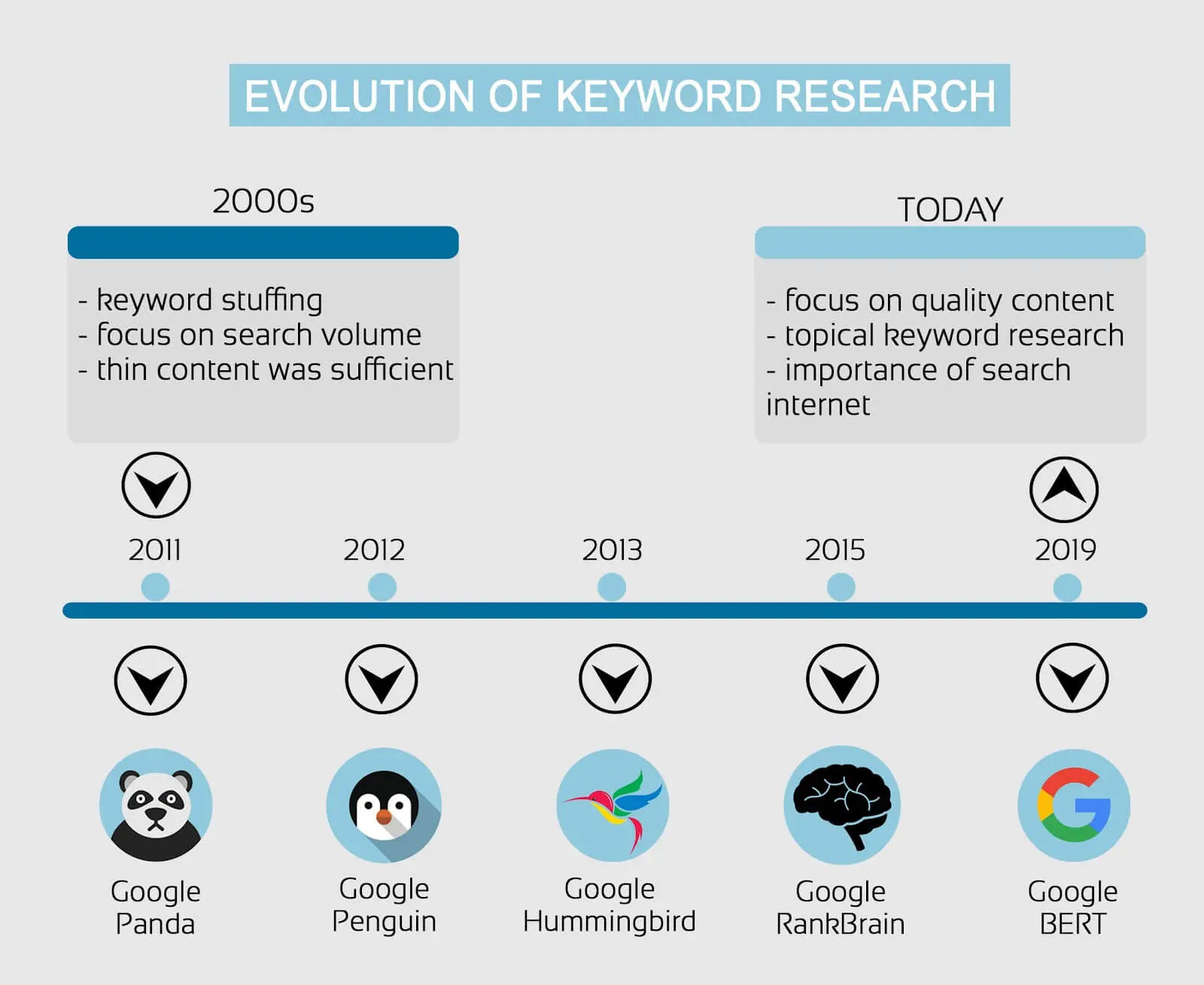
Finding The Best Keywords For SEO — Keyword Research
SEO Keyword research is the effort that helps you find and choose terms. People usually enter search engines like Google to connect with websites or find an article or blog post relevant to the search. It is one of the most crucial aspects of online marketing and search engine optimisation (SEO).
You can target search queries (terms and phrases) with proper research based on their popularity and ranking difficulties. And the insight you get into these keywords can help you build a content and marketing strategy.
However, keywords may not be as vital as one might think. After all, SEO has evolved over the years and using the exact keywords to match a person’s search is no longer a crucial SEO ranking factor. The user’s search intent plays a huge role, but more on that later.
It’s important to note that keyword research isn’t an outdated process even then. Marketers depend on it to gain insight into the topics people are concerned about and their popularity among the audience.
Here, search volume is a factor that comes into play; you’ll have to research keywords that are getting a high volume of searches every month. This will provide keyword suggestions and help you sort out the topics for which you wish to create your content.
Long story short, to address your audience’s queries, you must conduct keyword research based on the keywords’ popularity, search intent, and monthly search volume.
Want to receive updates? Sign up to our newsletter
Each time a new blog is posted, you’ll receive a notification, it’s really that simple.
How To Conduct Keyword Research?
In this section, we’ll highlight a few points to help you go about keyword research. Follow these steps to create a list of search terms and phrases to target. This list will help you establish and execute a strategy to find related keywords for your website.
1. Create A List Of Relevant Topics
Step 1 involves thinking about relevant keyword ideas for topics pertinent to your business and then developing specific keywords to improve search rankings.
For a blogger, topics for blog posts are the ones to target, while business owners must consider issues that usually come up during sales conversations. Irrespective of that, always think from the buyer or searcher’s perspective — consider the topics your target audience would most likely search for.
For instance, a company selling marketing software would have to focus on topics such as “email marketing,” “inbound marketing,” “lead generation,” “marketing analytics,” and “social media marketing.” Additionally, you’ll have to keep track of the monthly search volume of the keywords to know how important these topics are for the audience.
Using the data, you can gauge the number of subtopics you’ll need to create content, bringing us to step 2 of the keyword research process.
2. Getting Keyword Ideas
After picking the topics you’d want your website to focus on, identify all the keywords, including a focus keyword or seed keywords, under those topics. People use these keywords which you need to rank for which you need to rank for in search engine queries, so they’ll help you rank higher on the SERPs.
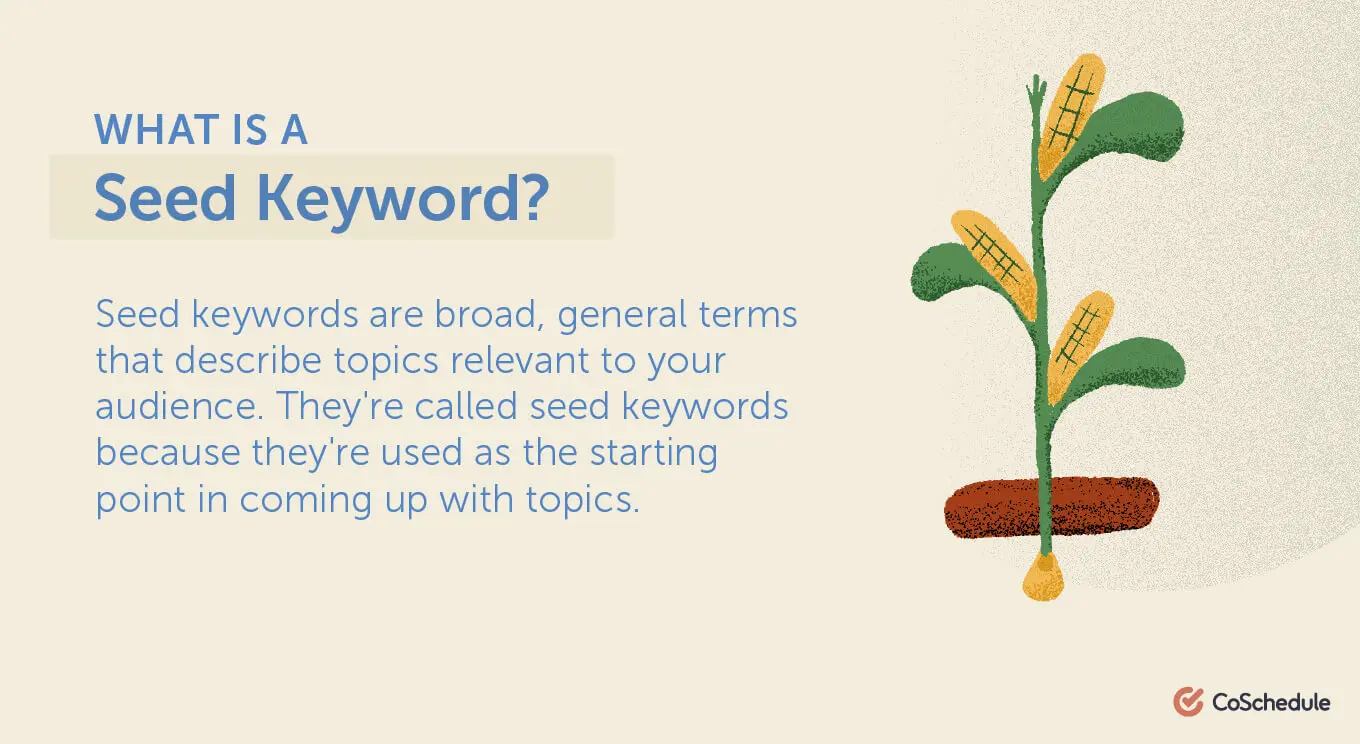
Let’s take “marketing automation”, for example; some popular keyword phrases related to the topic are “marketing automation tools,” “email marketing automation,” “lead nurturing,” “top automation tools,” and more. Now, these might include a great keyword for your final list of phrases; you’ll later have to narrow them down, but before that, include as many phrases and terms as you can brainstorm.
One way to find keyword ideas is by identifying the keywords already helping your website rank on the SERPs. Many web analytics and keyword tools, such as Google Analytics and the Traffic Analytics Tool, provide these metrics.
If you’re still having difficulty finding relevant keywords, contact your sales or customer service team and inquire about their questions and the terms they use. This is a great way to get your keyword research started.
3. Understanding The Importance Of Search Intent
As mentioned earlier in the article, the user’s search intent is pivotal in ranking a website on Google and other search engines. The terms and phrases you use should address the queries or concerns the user intends to seek answers to.
Step 3 involves understanding that keywords can have varied meanings, so using a particular term for face value won’t benefit your site unless it fulfils the audience’s search intent. You’ll also need to interpret the related terms and phrases carefully.
Suppose you wish to write an article using the keyword “how to start a blog.” A blog can refer to a blog post or the website itself. You’ll need to write content based on the user intent, i.e., know if the user wishes to start their blog post or wants to know how to launch a website domain for blogging.
The user’s keyword intent can be verified by conducting a keyword search to see the types of search results. Remember, the type of content showing up on Google’s SERPs should be closely related to the content you intend to create.
That being said, let’s now take a look at the five primary categories of search intent:
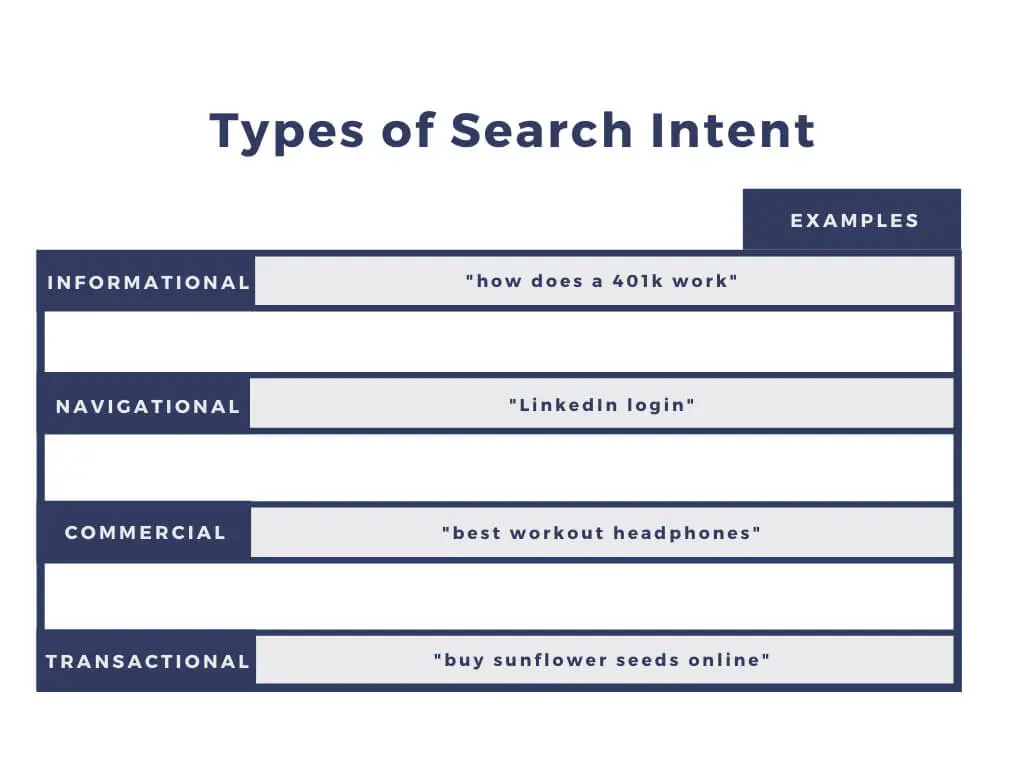
A) Informational Intent
People have an informational intent when searching for information on a topic, such as the weather, children’s education, or even SEO. They wish to know more about the specific topic, and Google understands this, but it doesn’t simply provide information about the term.
For example, it understands that people looking for the recipe for tomato sauce are not essentially interested in its culinary history. Or, if people search for the term “Mercury,” they are more likely looking for the planet and not the element.
A few examples of keywords for informational searchers are “how-to,” “why,” “what,” “best way to,” and “information. “
B) Navigational Intent
Next is navigational intent; people already know where they want to go online. For example, people searching for “Facebook” usually visit the Facebook website. So, ranking high for a navigational keyword only benefits your organic search traffic for organic search traffic when it’s your site that people are searching for.
C) Transactional Intent
Transaction intent occurs when people search for and buy something, be it a product or service. They browse the internet to find the best option for their purchase.
Some search terms used to conduct searches with transactional intent are “discount,” “deal,” “buy,” etc.
D) Commercial Investigation
Some people research a particular product or service on the web, intending to buy it soon. They have a transactional intent but need more convincing before making the purchase. They conduct searches like “What is the best coffee machine to buy?” or “Which is the most helpful SEO plugin?”
Long story short, the combination of transactional and informational intent is commercial investigation.
E) Local Queries
When they wish to find something locally, they conduct these searches, such as a coffee shop, music venue, dance academy, doctor, etc.
4. Find Search Terms Related To Your Research
After a point, you might find developing keyword ideas related to a specific topic challenging. When entering a keyword in Google’s search bar, you should consider related search terms.
When you type in the keyword phrase or term and scroll down to the bottom of Google’s results page, you’ll notice suggestions for terms related to the search conducted. These keywords might help you add more search terms and phrases to your keyword list.
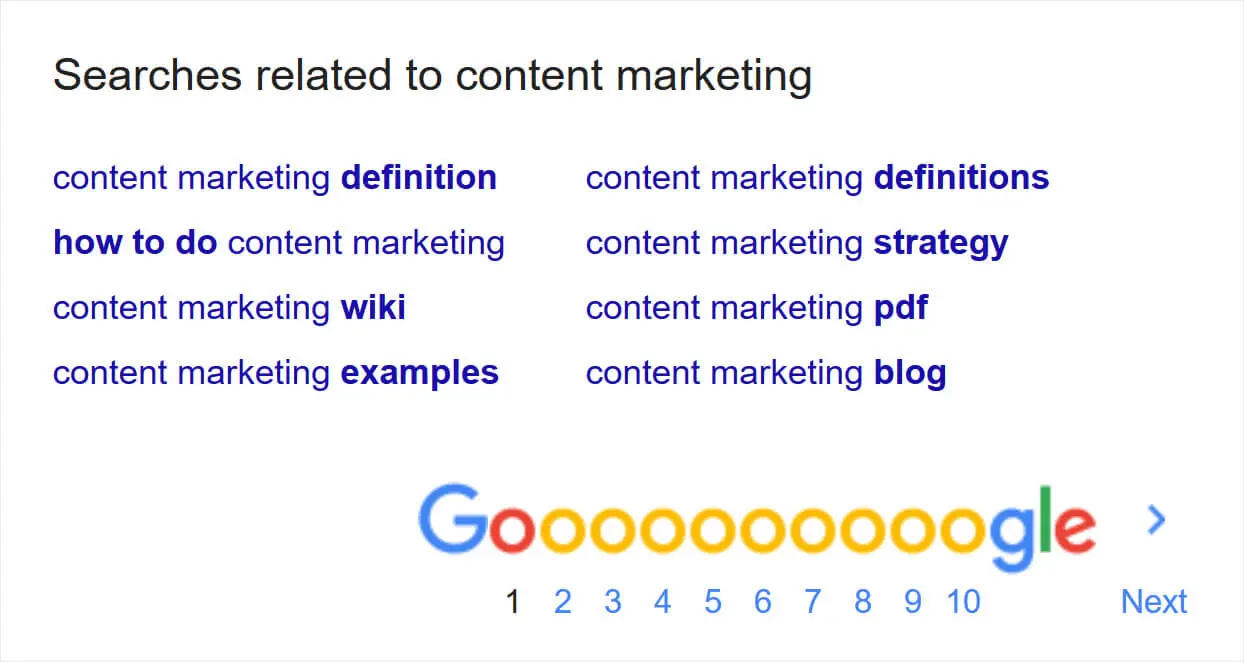
5. Use Keyword Research Tools
SEO and Keyword research tools will help you get more keyword ideas to create relevant content for your business website. Here is a list of popular tools that keyword research requires you to consider:
A) Google Keyword Planner
Google Keyword Planner is a free and helpful tool. You can use the keyword research features to help you build strong keyword lists with generic terms and phrases relevant to your online business, along with exact match keywords and phrase match terms. It also allows you to track search estimates and costs. This, in turn, will help you build your online marketing strategy accordingly.
To use keyword research tools like Keyword Planner, set up a Google Ads account. Once you log in, you’ll see an icon resembling a wrench; click on it and select “Keyword Planner.” You can then use the two tools within Keyword Planner: “Get Search Volume and Forecasts” and “Discover New Keywords.”
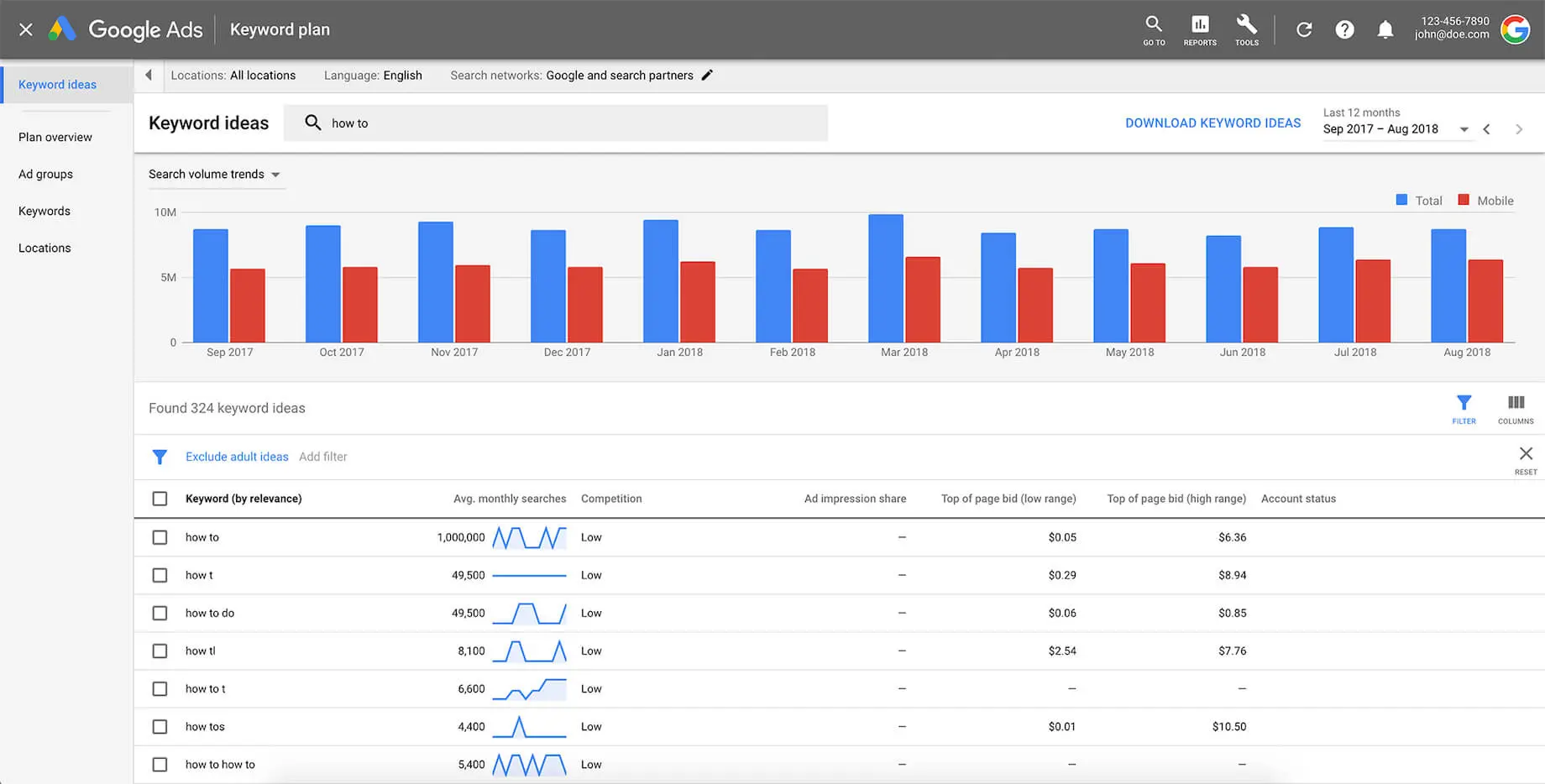
B) Google Trends
Knowing seasonal keyword trends is essential for setting a content strategy. With Google Trends, you can do all that and more. It will help you optimise marketing strategies by understanding keyword search volume, finding trending topics relevant to business, and identifying seasonal trends.
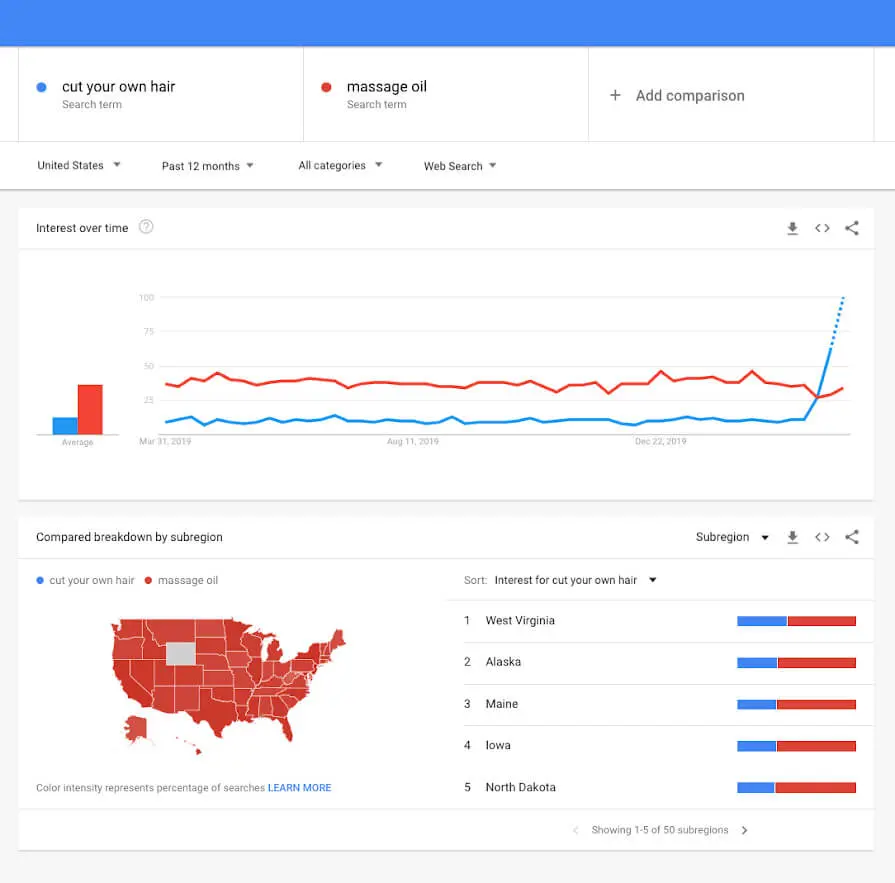
You must enter a search term or topic; the keyword tool will present all the required data. Furthermore, it offers features like “interest in sub-region,” allowing you to conduct keyword research based on region. The region-specific research can help make your content more relevant and relatable.
Thankfully, Google Trends is a free keyword tool anyone can use without limitations. Free tools make it easy to find the average monthly search volume and keyword metrics used to grow organic traffic.
C) SEMrush
SEMrush is a keyword research tool, and a tool like SEMrush is an all-in-one SEO and content marketing platform. The complete SEO tool for professionals includes an SEO toolkit with all the tools required to boost organic search traffic by tracking your website’s SERP ranking, running technical audits, and uncovering millions of local and national, short and short long-tail keywords.
It will give you access to the world’s largest database of 30 million ads, 20 billion keywords, and 17 billion URLs crawled daily. The data obtained is then analysed to give you recommendations and suggestions on improving brand visibility and rankings on the search results pages.
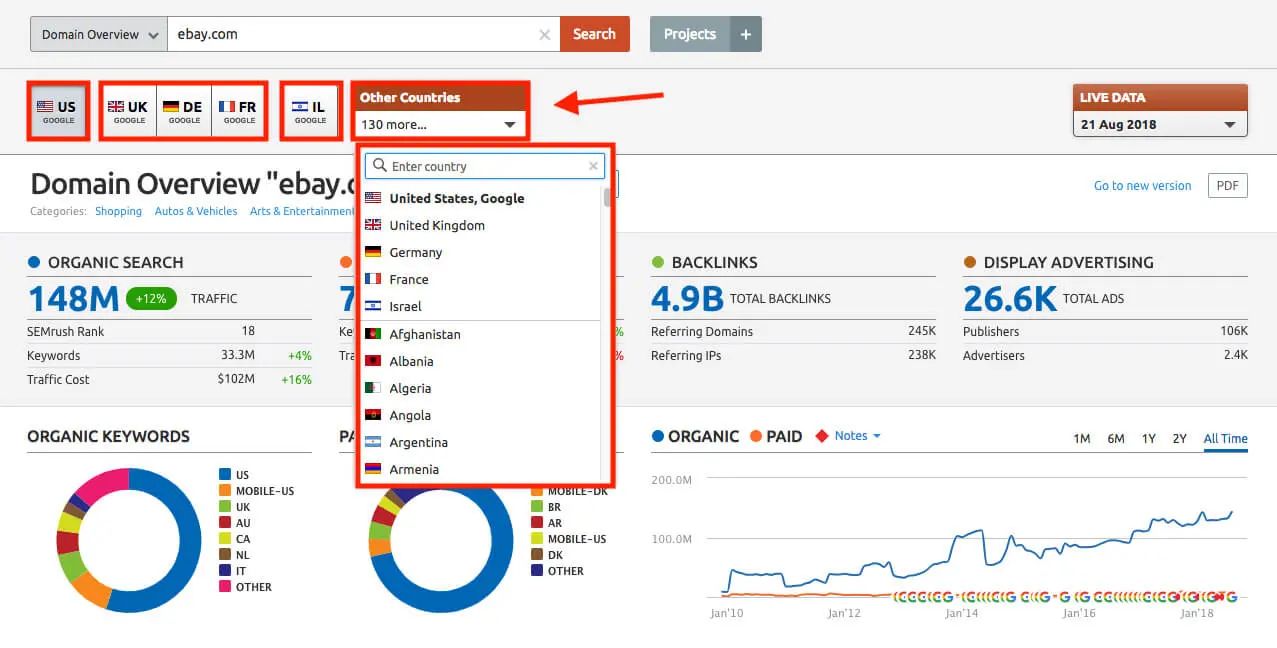
D) Answer The Public
Answer The Public is another free keyword tool to search for queries and questions surrounding a specific keyword within no time. Additionally, you can explore keywords related to your main queries with another free research tool, Keywords Everywhere, to prioritise its suggestions based on search volumes.
It usually combines the primary keywords with a wide range of common questions like “who,” “what,” “why,” etc. You’ll get keyword ideas through comparisons and “preposition” keyword terms and phrases.
For those who are unaware, these are seed keywords combined with other keywords using prepositions like “to,” “on,” “of,” etc.

E) Moz Keyword Explorer
You can use Moz Keyword Explorer to get relevant keyword data and information on SERP features, such as featured snippets, local packs and monthly search volumes. It utilises live clickstream data to extract the accurate search volume of a particular keyword that might help your website rank higher on Google’s SERPs.
That’s not all; Keyword Explorer comes with a “Keyword Difficulty Scores” feature to help narrow the keyword list to the terms and phrases you might have a better chance at ranking for. Remember that a greater keyword difficulty and SEO difficulty score would mean it will be more difficult to rank for the specific term.
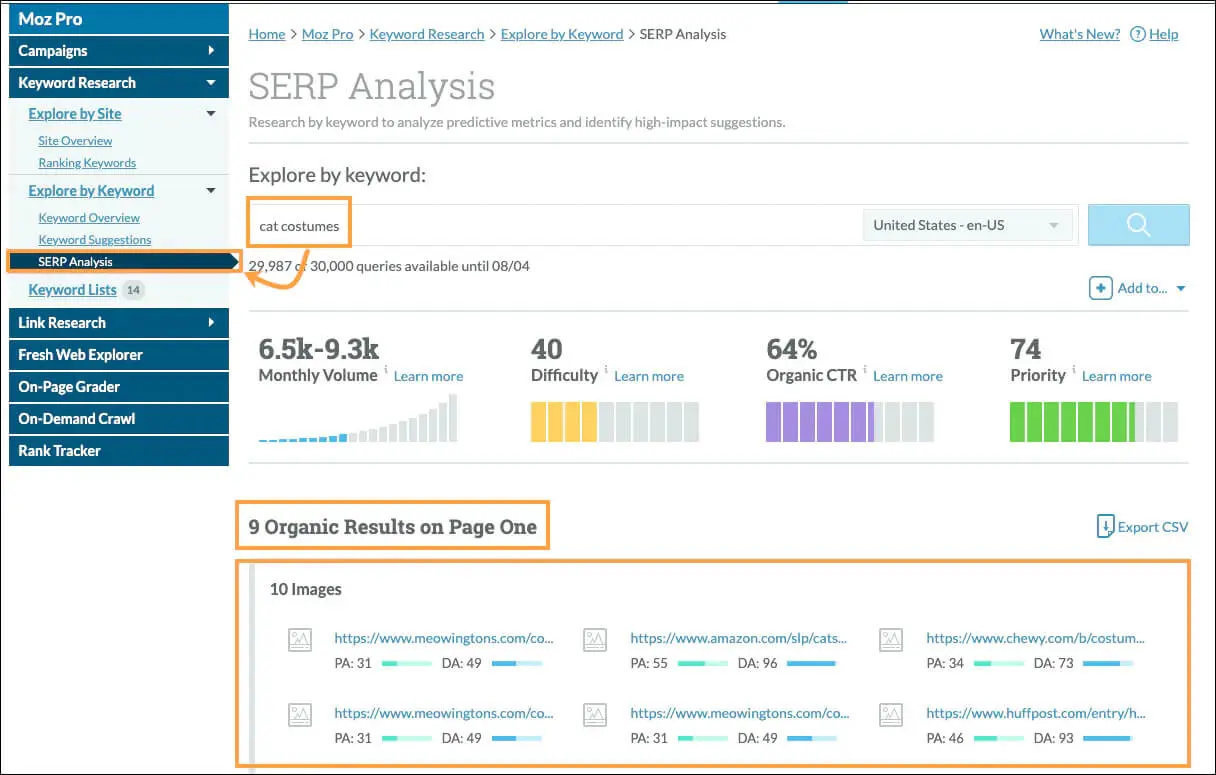
F) Google Search Console
Google Search Console is another web analytics and keyword research tool that will make your website shine in search results. In addition to keyword research, it helps you measure your website’s search traffic and performance.
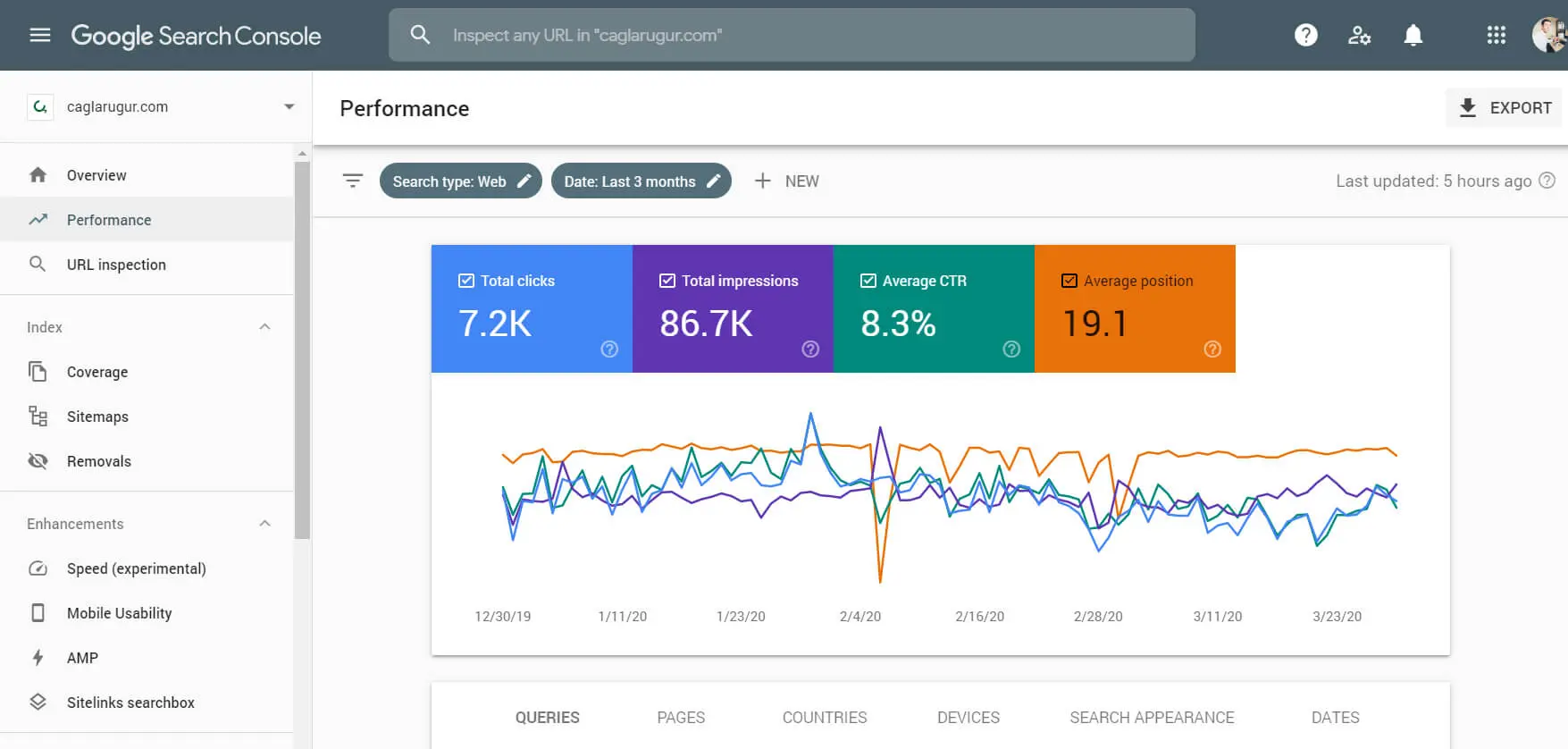
The data from Google Search Console can also help you find unexpected shortcuts. For instance, if your keyword-optimised URL ranks on the second or third page, Google already rates it among the top-ranking pages for that particular keyword.
All it needs is a little boost to rank on the first page and increase search traffic.
G) Keyword Tool Dominator
Keyword Tool Dominator is a free keyword research tool enabling you to dig through Amazon’s database. The only issue is that it only provides keyword ideas; there’s no way to determine the search volume for each keyword.
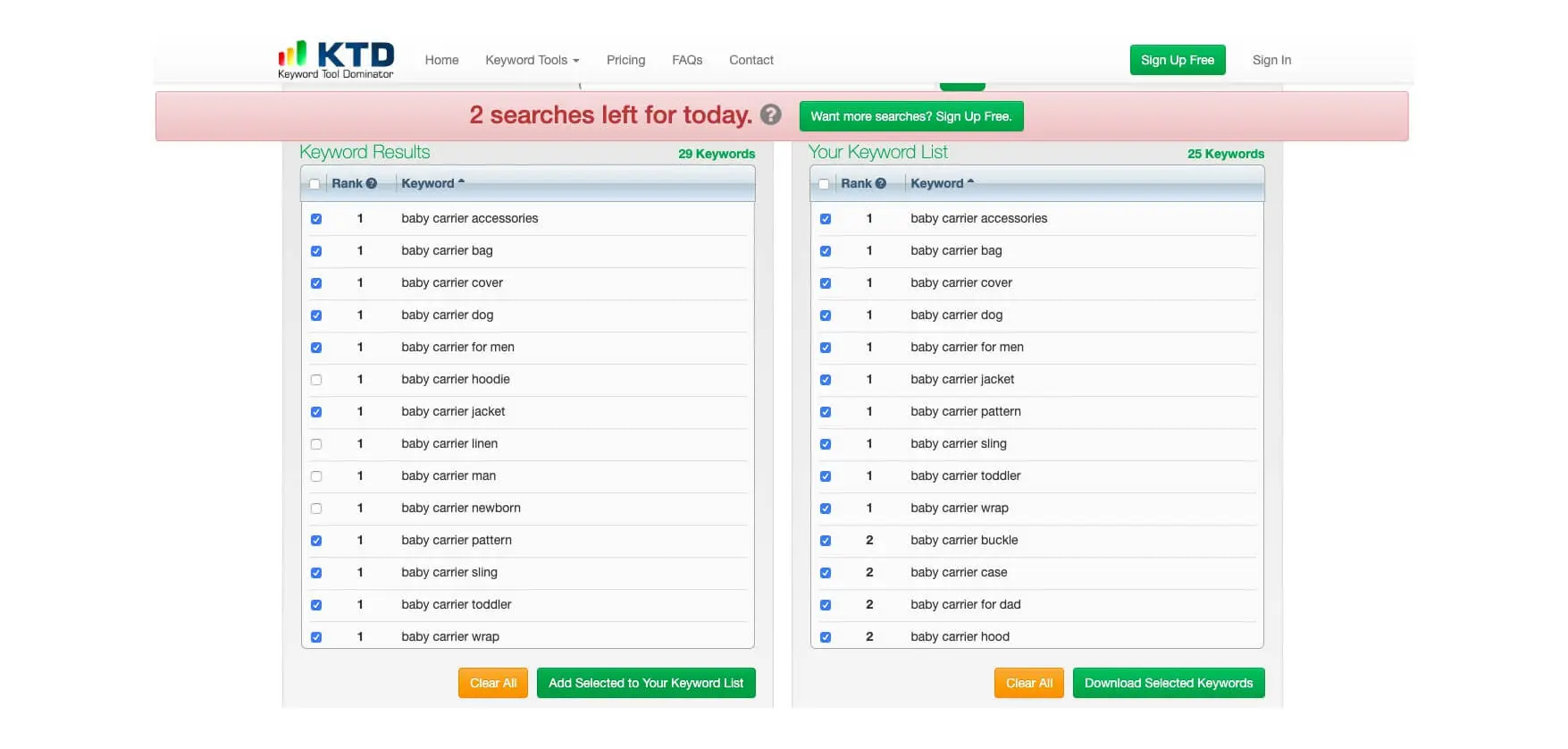
6. Identifying Long-Tail Keywords
Focus or seed keywords are the shorter search terms closely related to the primary categories and topics. On the contrary, long-tail keywords are related to the smaller sub-topic buckets of a business and are more descriptive, making it easier to match them to your audience’s search intent. A long-tail keyword typically consists of three or more words, bringing in a more qualified searcher.
Let’s take, for example, published content related to coffee machine reviews; long-tail keywords like “the top 9 coffee machines of 2026” will attract a more relevant target audience than the seed keyword “coffee machine.”
Indeed, long-tail keywords tend to have a lower search volume, but they result in higher search conversion rates within a min read since they focus on a more specific topic, product, or service. Long-tail terms are considered the low-hanging fruit and help support your head terms in clustering.
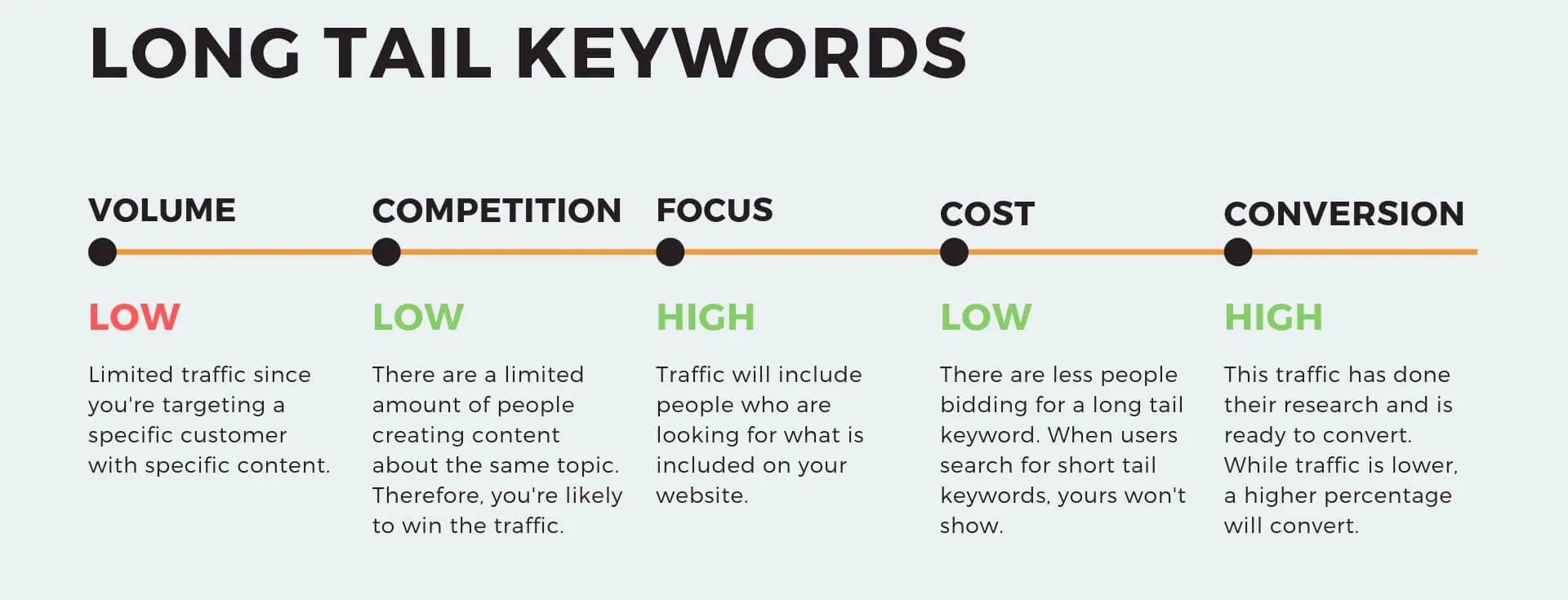
7. Knowing About Competition
Conducting keyword research on Google for your brand alone isn’t enough. You need to be aware of the keywords your competitors are targeting to better understand the industry’s content landscape.
Understanding the competitive levels of different keywords will help you identify search phrases that might be difficult to rank on SERPs. Plus, you’ll find keyword opportunity gaps, usually when you find related keywords for your business or brand with medium or low competition levels.
You can easily find these keyword opportunity gaps by searching for the competition. There are keyword research tools to help you in the process. For instance, the Keyword Magic Tool, offered by some SEO platforms, has a competitor analysis feature similar to Keyword Tool Pro that enables you to do that.
Enter the competitor’s URL in the search box, and it will show you a list of keywords that the particular page ranks for.
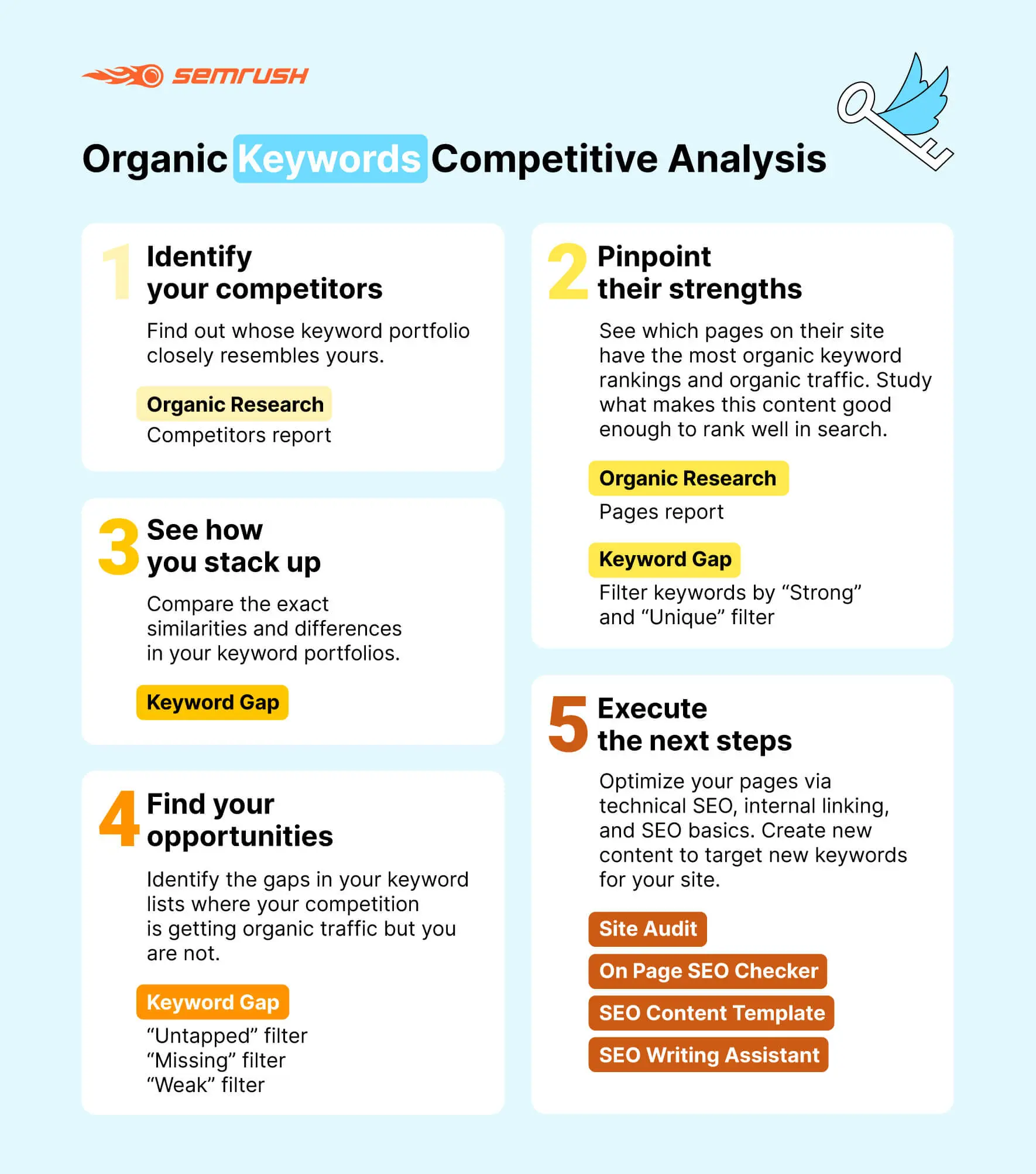
How To Choose Keywords For Your Website?
Keyword research is essential to finding keywords relevant to your business or website. Not all these keywords will help your site rank on Google’s SERPs. You’ll need to refine the list of keywords and shortlist the best ones for your content strategy.
In other words, you’ll need to choose the right keywords with a high volume of monthly searches. Here’s where we’ll guide you on how to select the right keyword for the selection process.
1. Factors To Consider While Choosing The Best Keyword
As we’ve mentioned, you can’t expect your content to rank high on the search engine results page (SERP), no matter how relevant the target keywords are. You need to choose the best keywords based on the following five factors:
A) Relevance
As you already know, Google tends to rank content based on relevance, and here’s where the concept of search intent once again steps in, which is a crucial part of your keyword strategy. You’ll need to choose keywords that will meet the searcher’s needs; only then will your content rank on the SERPs.
Additionally, your content should be the best source of information on the internet for the search query. After all, Google will only consider the most relevant site capable of addressing the searcher’s queries if you offer the most value compared to the other online brands and websites.

B) Domain Authority
Google usually gives more importance to sources or websites that seem credible and authoritative. So, it would help if you gained domain authority as a credible site on the web by enriching it with helpful and relevant informational content and then promoting it to earn backlinks and social media signals.
Sites not seen as authoritative sources in the industry or space have a lower chance of ranking; the only exception is if their content is exceptionally outstanding. The site will also fail to improve SEO rankings if the SERPs for a specific search term are flooded with highly authoritative websites with relevant content and backlinks to other credible sources.
C) Search Volume
Even if your website ranks on the first page of the search results for a specific search term or keyword, it might not result in search traffic, especially if no one ever searches for it. So, consider the individual search queries’ MSW (monthly search volume) while choosing the right keywords for your website content.
Speaking of MSW, the number of searches per month that users conduct for any specific keyword. You may use SEO tools like Google Keyword Planner to find keyword search volumes.
The high volume that adds business value should be considered while creating content for your online business or website.
D) Keyword ROI
Next, think about return on investment; in other words, check whether the keyword brings value to your website. It should be able to optimise the content and result in conversions.
That said, it’s important to remember that long-tail keywords ensure higher conversion rates than short-tail or seed keywords.
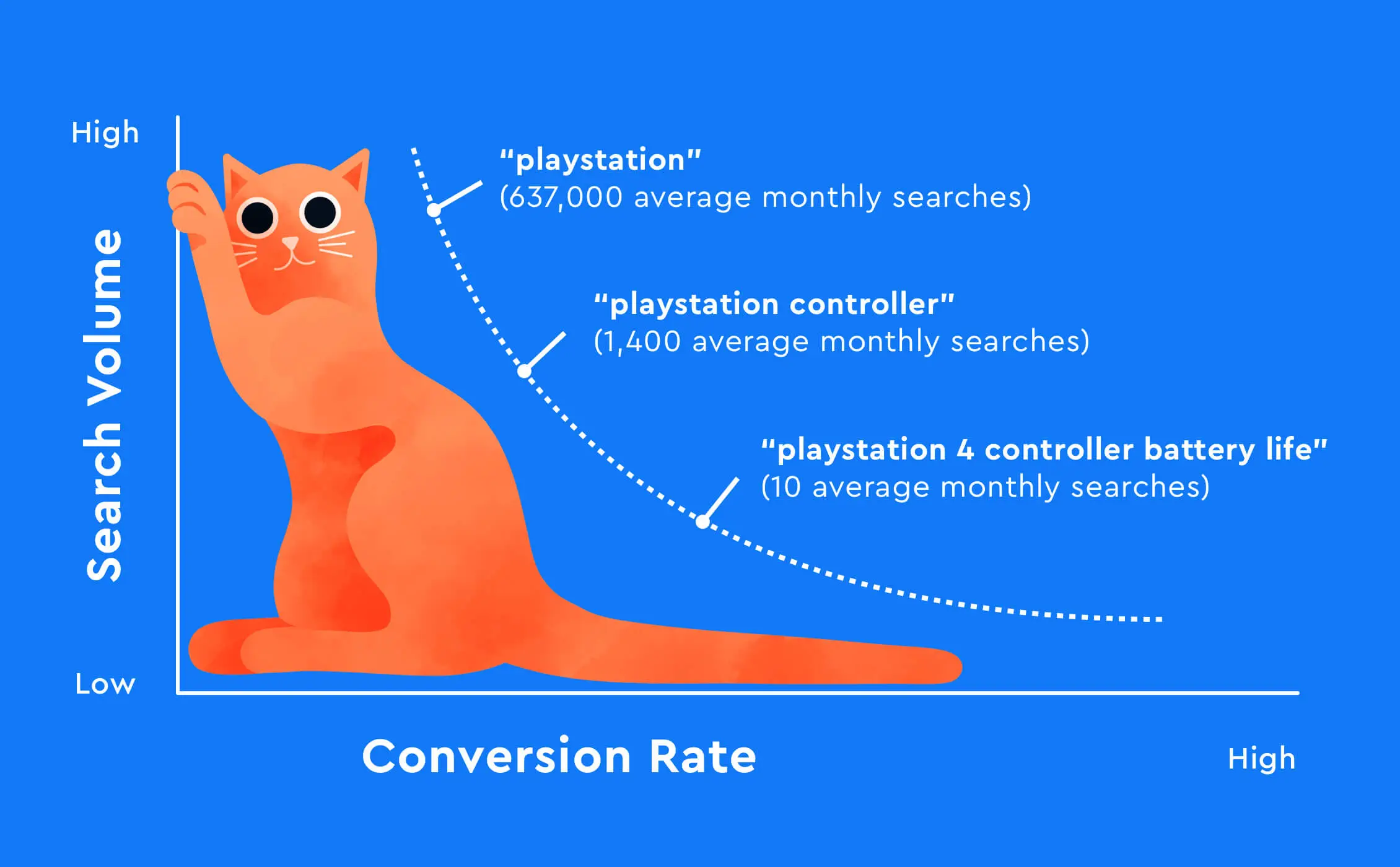
E) Keyword Intent
We’ve spoken in-depth about search intent for finding keywords for your website, but even keyword intent plays a crucial role in choosing keywords. After all, you can’t control the type of user your content brings to the website page by controlling the keywords it ranks for.
For example, include calls to action in the keyword phrases you’d want to rank on the SERPs to boost conversion rates.
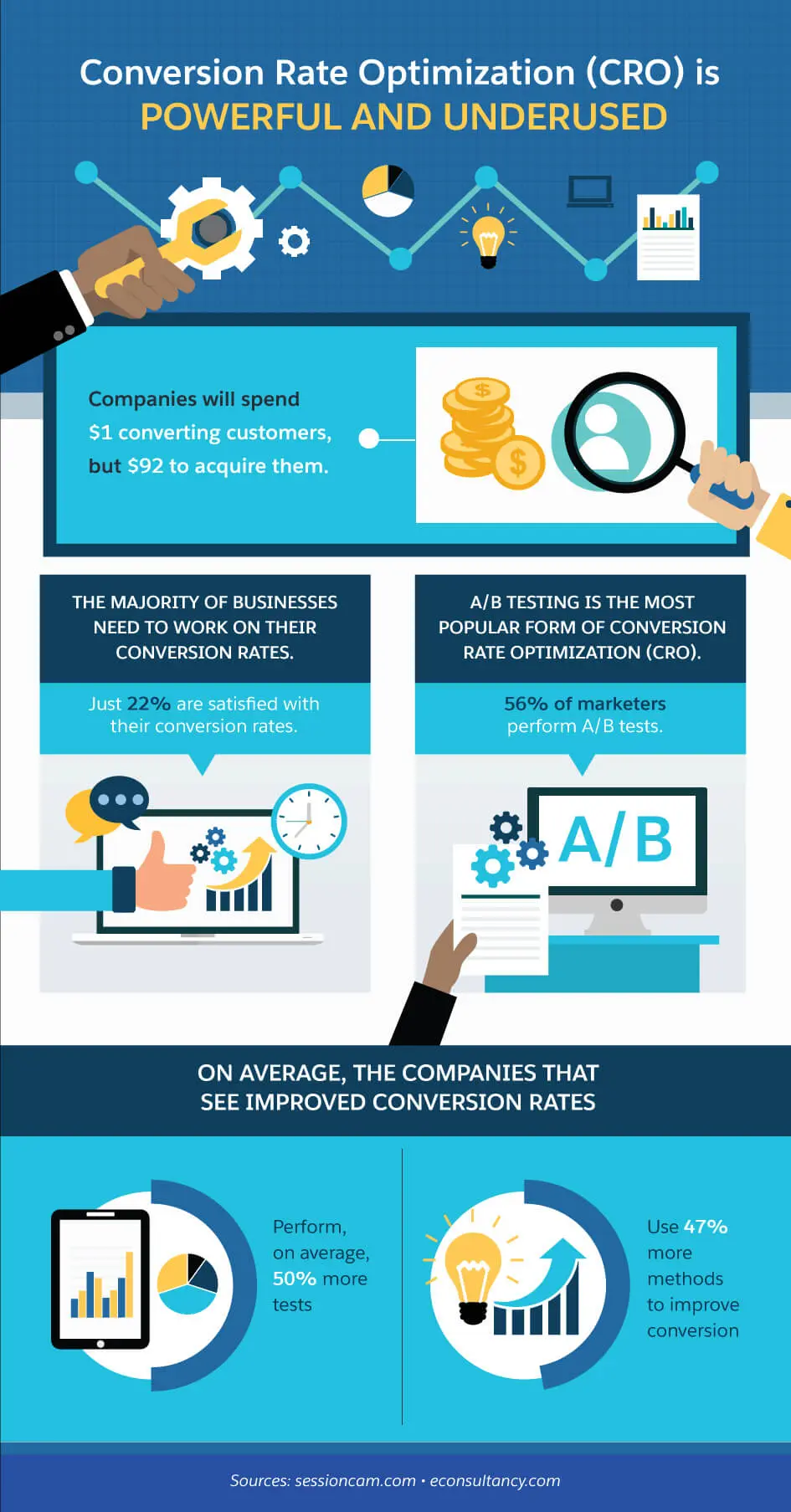
2. Checking For Long-Tail Keywords And Seed Keywords
First, knowing how long-tail keywords tend to drive targeted traffic compared to head/seed keywords is essential. Head keywords are shorter and more generic keyword phrases, including two to three words. On the other hand, long-tail keywords are longer phrases containing more than two to three words.
Mix long-tail and head keywords, considering their ranking difficulty, for a balanced strategy for long-term and short-term goals. People search for head keywords more frequently, making them more competitive and difficult to rank for.
Consider, for example, “blogging” and “how to create a blog post.” Without even considering target keyword difficulty and search volume, it’s evident that without the right keywords for SEO, the seed keyword “blogging” will be more challenging to rank for.
Seed keywords will undoubtedlyhave the most searches (search volume), but in this case, the long-tail keyword “how to create a blog post” will be more desirable and beneficial for the website.
That’s because these keywords tend to be more specific to the Google user’s search, and people here who know what product or service they wish to find will be able to reach your site more easily. In contrast, your website might get lost amidst the thousands of pages in Google’s search results for a more generic term, such as “blogging.”
Searchers might search for this specific keyword for several reasons unrelated to your site or online business. So, even if they click on your site and visit it, the chances of getting a conversion would be slim.
Check your keyword lists to ensure a healthy and balanced mix of long-tail and seed keywords, also known as head keywords. Of course, you’d want the easy wins with long-tail keywords, but you might need the shorter, more generic ones to rank for diverse topics in the long run.
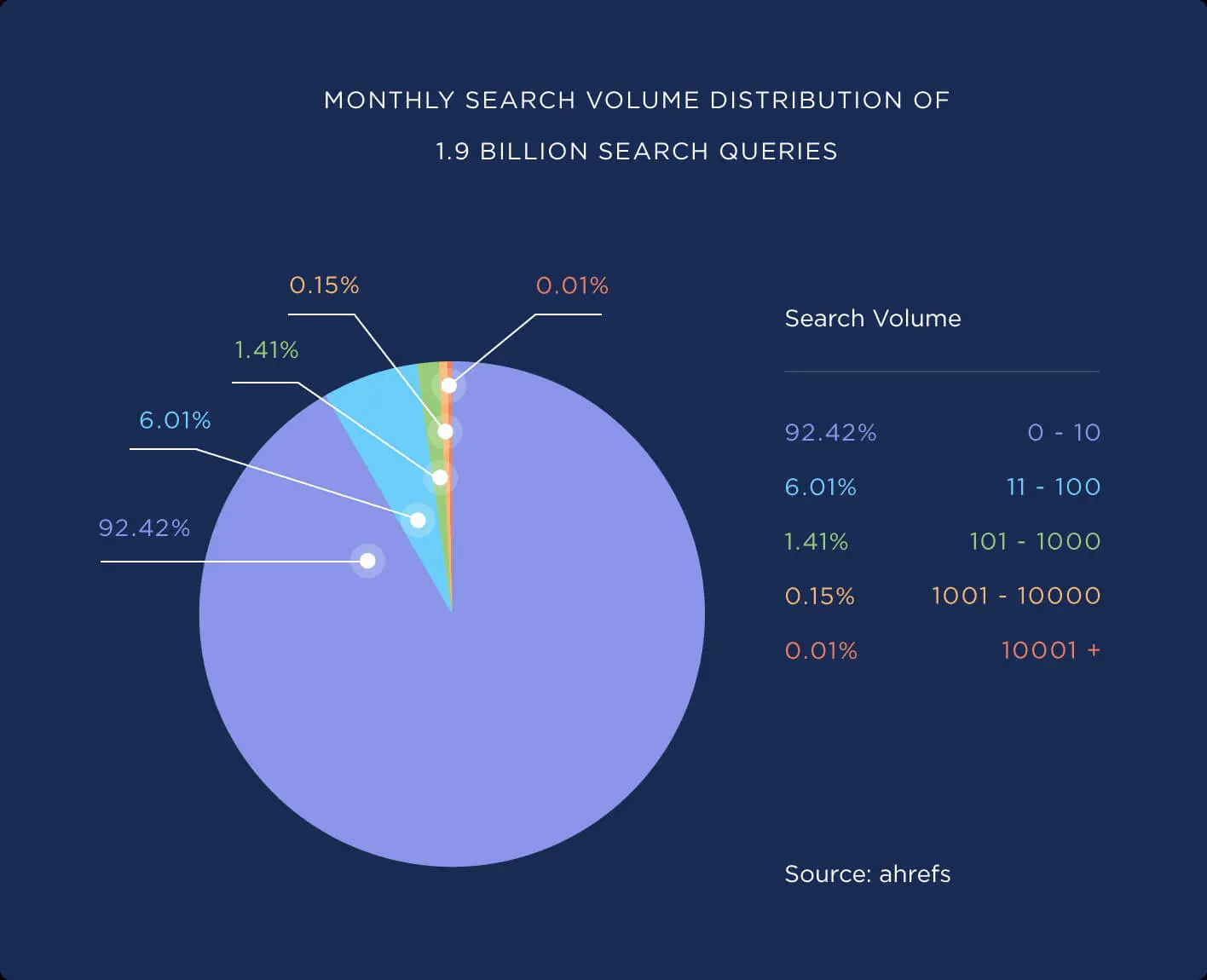
3. Checking The Performance Of Competitors
As a digital marketer, remember that you need not do the same thing your competitor does; the same goes for keywords. If a keyword is essential to your competitor, it doesn’t mean it’s the best keyword for you.
But even then, knowing the keywords other websites in your industry are trying to rank for is crucial. It will help you evaluate the list of keywords better and understand if any term or phrase needs to be added or removed.
Suppose the competitor ranks on the first page for search terms and phrases on your list, too. It makes sense to try improving your SEO rankings for those keywords. But that doesn’t mean you should ignore the ones competitors don’t care about.
Use these keyword opportunities to own a significant market share for essential keywords. Ensure you understand the balance between realistic terms and those that can be challenging because of the competition.
This will help you strike a similar balance between long-tail and seed keywords. After all, the goal is to create a list of keywords you’d want to rank higher on the SERPs while progressing to more challenging SEO goals.
You can easily find the keywords your competition ranks for by manually searching them in an incognito browser. It will allow you to see the positions the other websites are in.
A more efficient method is to use tools and software platforms like Ahrefs. It will enable you to run several free reports, showing the top keywords for the domain or URL you enter. This serves as a quick way to understand the search terms your competition is ranking for.
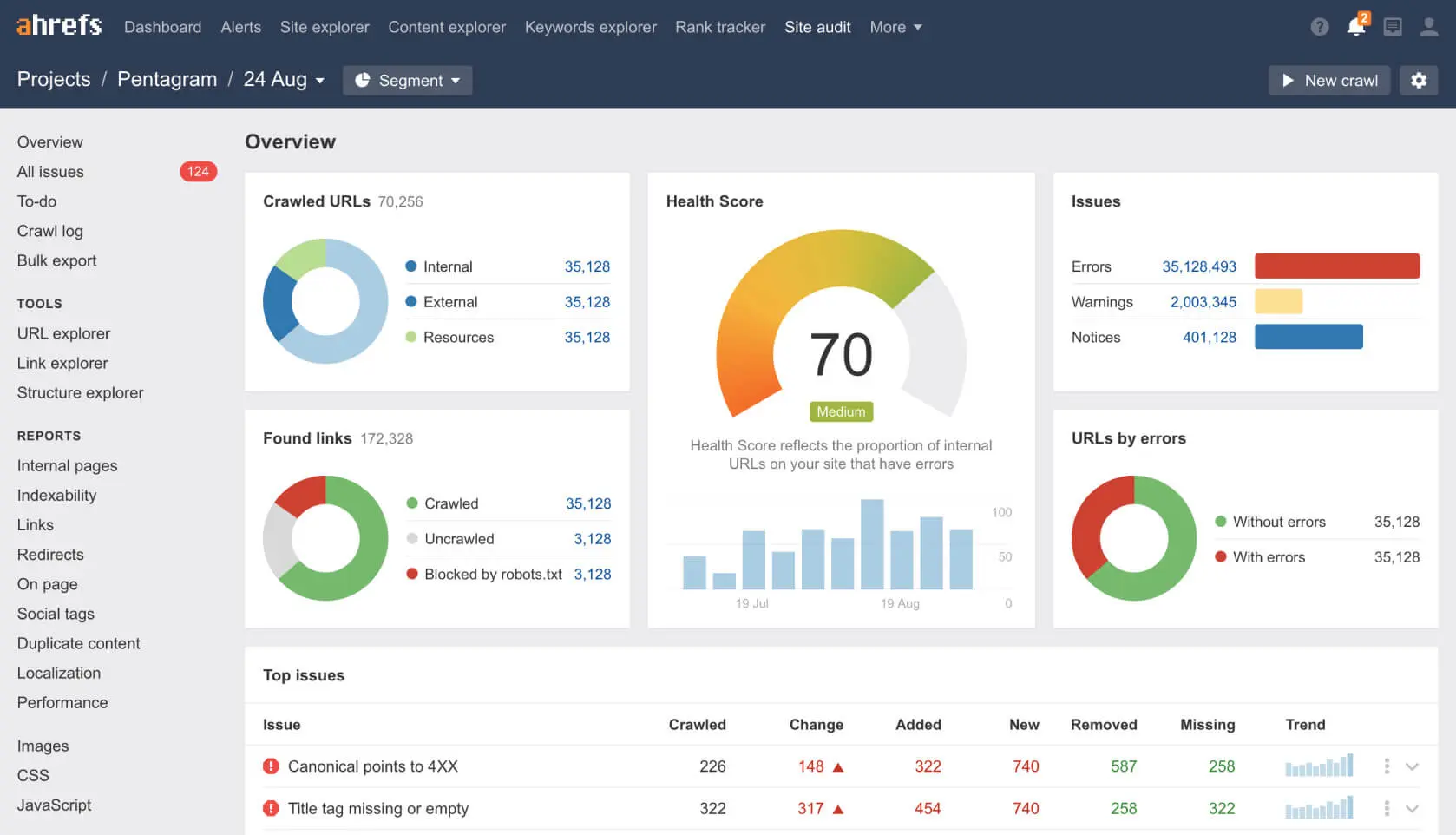
4. Cut Down The List Of Keywords
After striking the right balance of keywords, cut down the keyword lists with more quantitative keyword data. Several tools help you do this, but we’ll highlight Google’s Keyword Planner and Google Trend today.
These tools can be used together; ensure you create a Google Ads account before that. The Keyword Planner will provide data on search volume and estimate search traffic for the keywords you’d want to rank for.
Next, collect all the information provided by Google Keyword Planner and use Google Trends to fill in the missing gaps.
The planner will help identify the keywords; having a search volume that’s too low or high won’t help maintain a healthy balance (as we’ve discussed above). However, before eliminating these terms from the list, make it a point to check their projections and trend history on Google Trends.
This is because even the low-volume or low-competition keywords might ensure returns in the long run. As such, it would be beneficial to invest in them.
Google Trends also helps identify important terms and phrases trending upwards, which, in turn, might require more of your focus. The keyword trends will make narrowing down the keyword lists easier, especially if they are unwieldy.
How To Make SEO Keywords Work?
Once you complete the keyword research process and find the best keywords for your website, use them to achieve the desired SEO results, including higher conversion rates, cost per click, search traffic, and more. Now, you may start including relevant keywords in the high-attention areas on your website.
Here are some areas where they should be strategically placed to optimise the site’s pages:
1. Page Titles
It’s a good idea to use target keywords or keyword phrases while writing your web page title to make it more relevant and attractive to the target audience. This will also boost brand visibility, especially in mobile SERPs, where the page title of a site usually gets cut off.
A title tag is part of the meta group of tags designed to help search engines determine what a particular page is about. Meta tag optimisation should always be in your day-to-day SEO efforts.
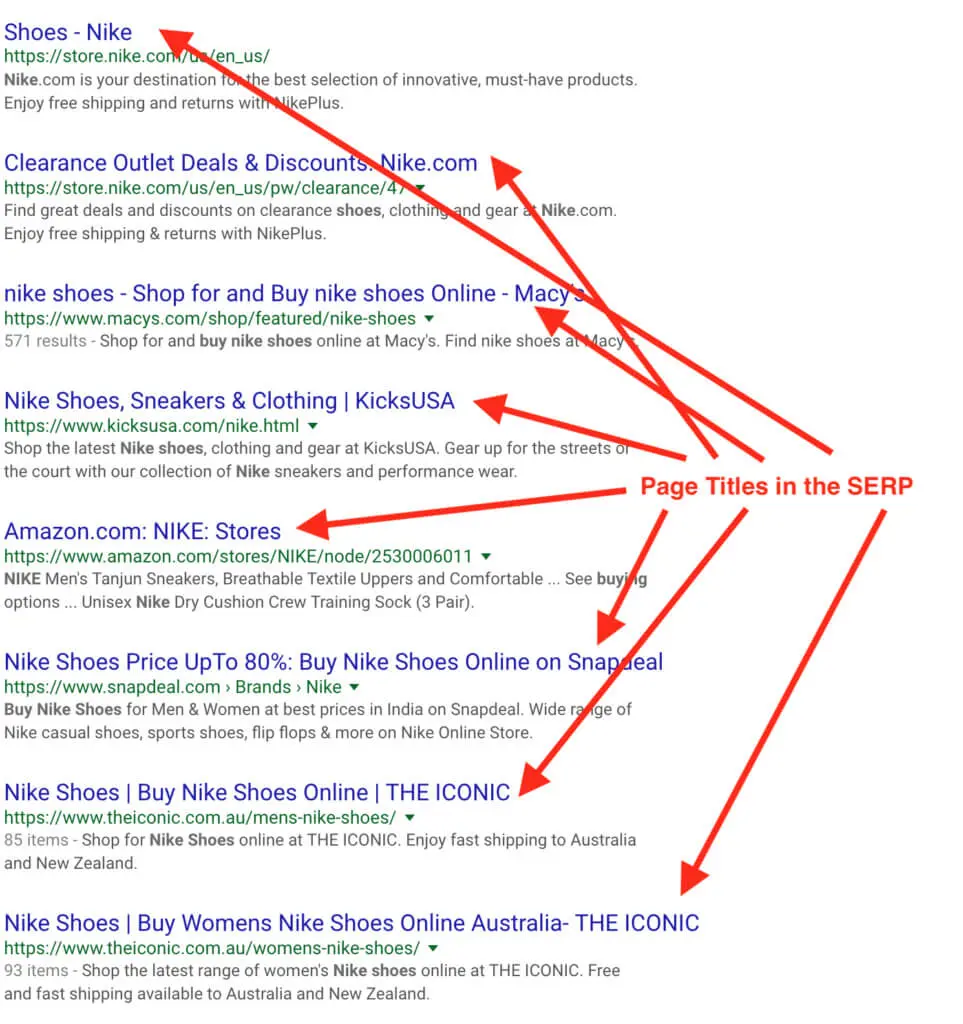
2. Meta Description
The meta description of a page allows searchers to know what the content of that page is about. That’s why it’s essential to include the appropriate keywords relevant to your online business.
This will also help the searchers decide whether to click on the search result to see the entire content.
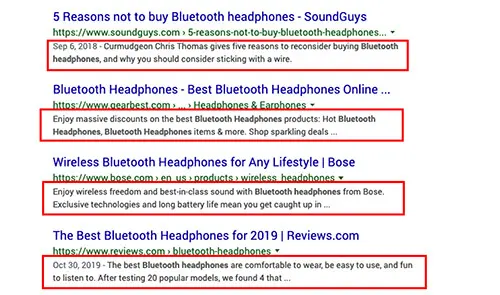
3. Headings And Subheadings
Including headings and subheadings in your content will make it easy for readers to skim, helping them decide if the content is relevant and capable of meeting their requirements. So, make it a point to use keywords in a few of its headings and subheadings.
This will also make your website more search engine-friendly, improving your SEO rankings marginally.
4. Web Page Content
The most important place to use SEO keywords for optimisation is your web content — one of the top SEO ranking factors. However, it’s crucial to do it correctly; otherwise, poor use of keywords can deteriorate your SEO rankings.
Avoid keyword stuffing; if you have keywords in every sentence, there’s a high possibility of incurring Google penalties. This will also negatively impact your content readability.
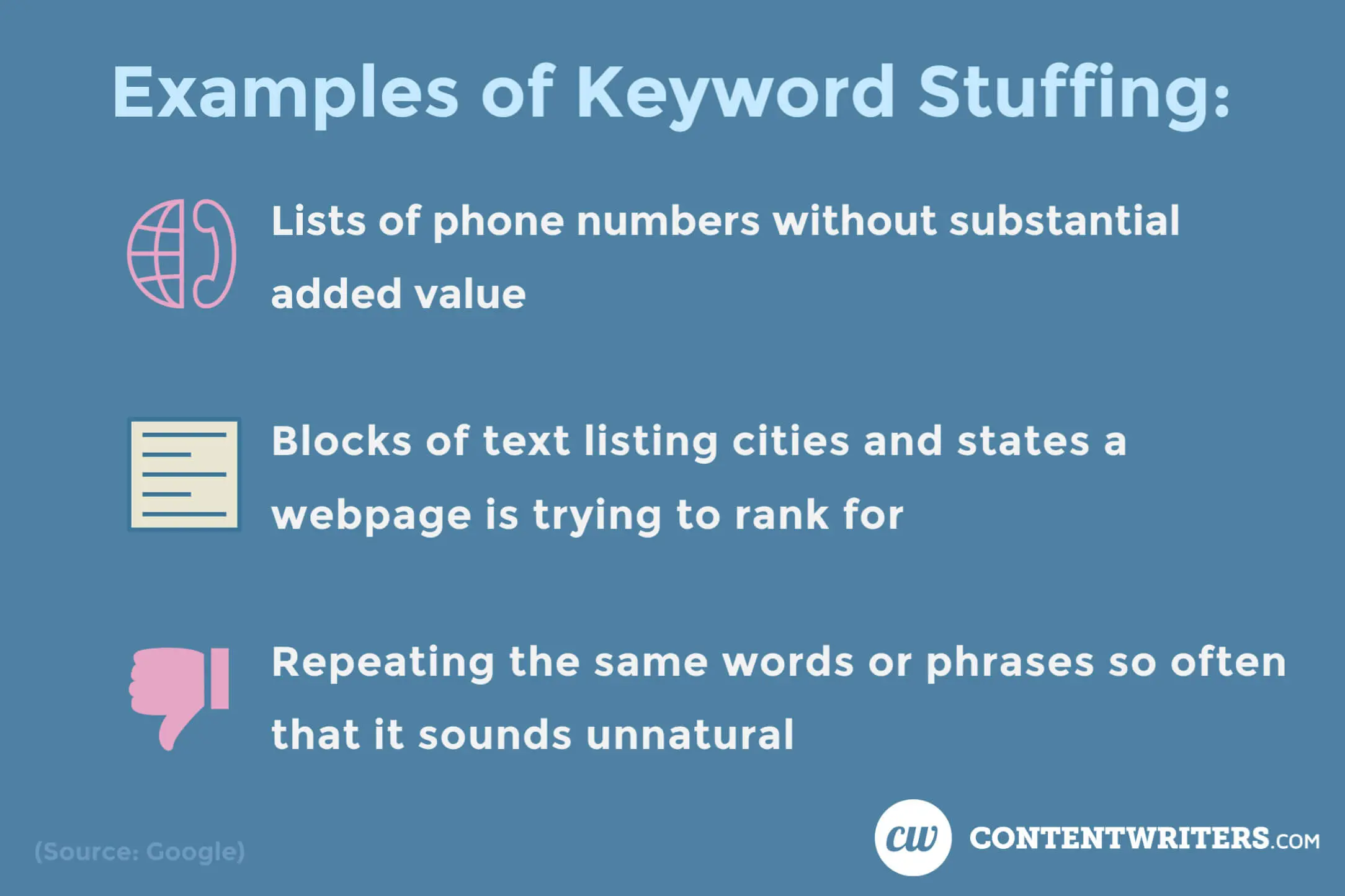
Use keywords effectively using the primary keyword in the first few sentences or paragraphs. Then, use its variations throughout your content strategically.
To make the content more understandable and readable, using latent semantic indexing (LSI keywords instead of exact keywords every time) is better.
5. URLs
URLs give both visitors and search engines like Google an idea about what your page is about. So, keeping the URLs short by including one or two target keywords is a good practice. This will help people visiting your site understand your website content more easily.
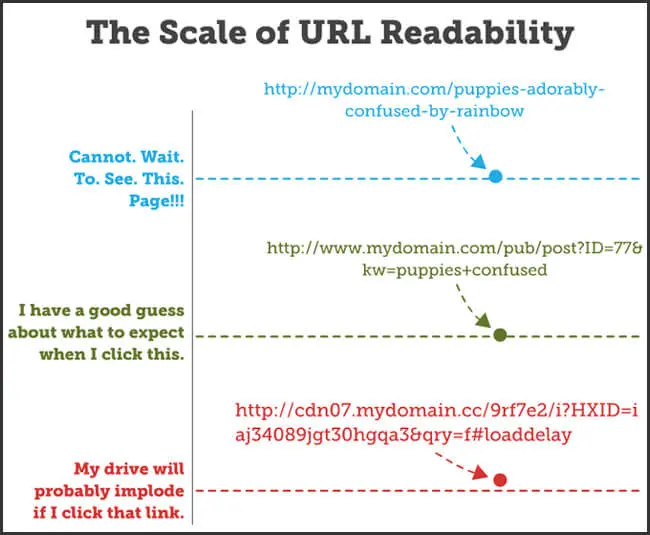
6. Links And Anchor Texts
Links are among the top SEO ranking factors that must be optimised for SEO. Here, the rule is to vary the anchor text to avoid getting flagged and penalised by Google. You may use LSI keywords to vary your inbound anchor texts.
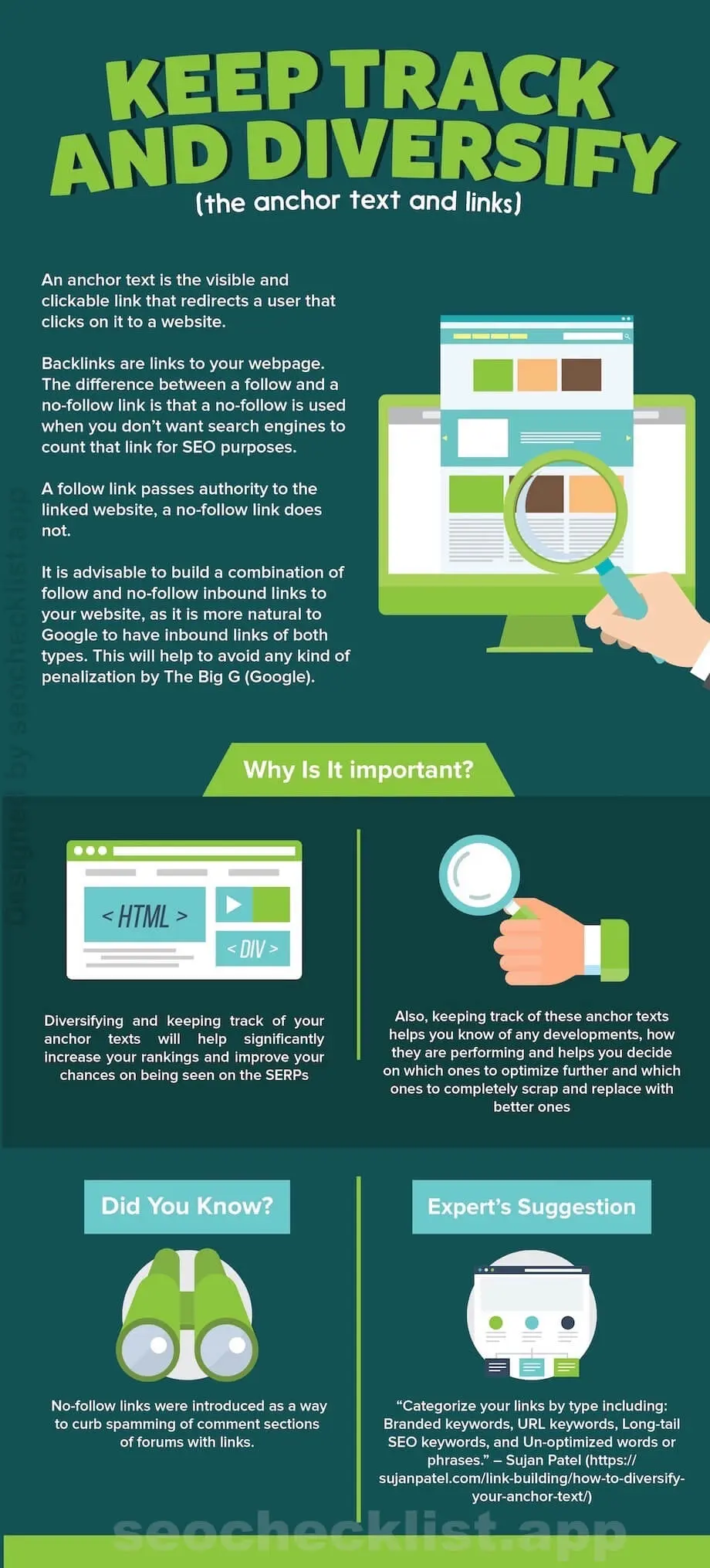
7. Social Media
Social media isn’t a direct ranking factor, but strongly links brand visibility and SERP social shares. That’s one of the reasons why you should use keywords in social media posts and updates to boost your SEO ranks.
Keywords can also be used as hashtags in social media posts and updates, making finding relevant site content more manageable. Pay close attention to how you use the keywords as hashtags since hashtag usage may vary from website to website.
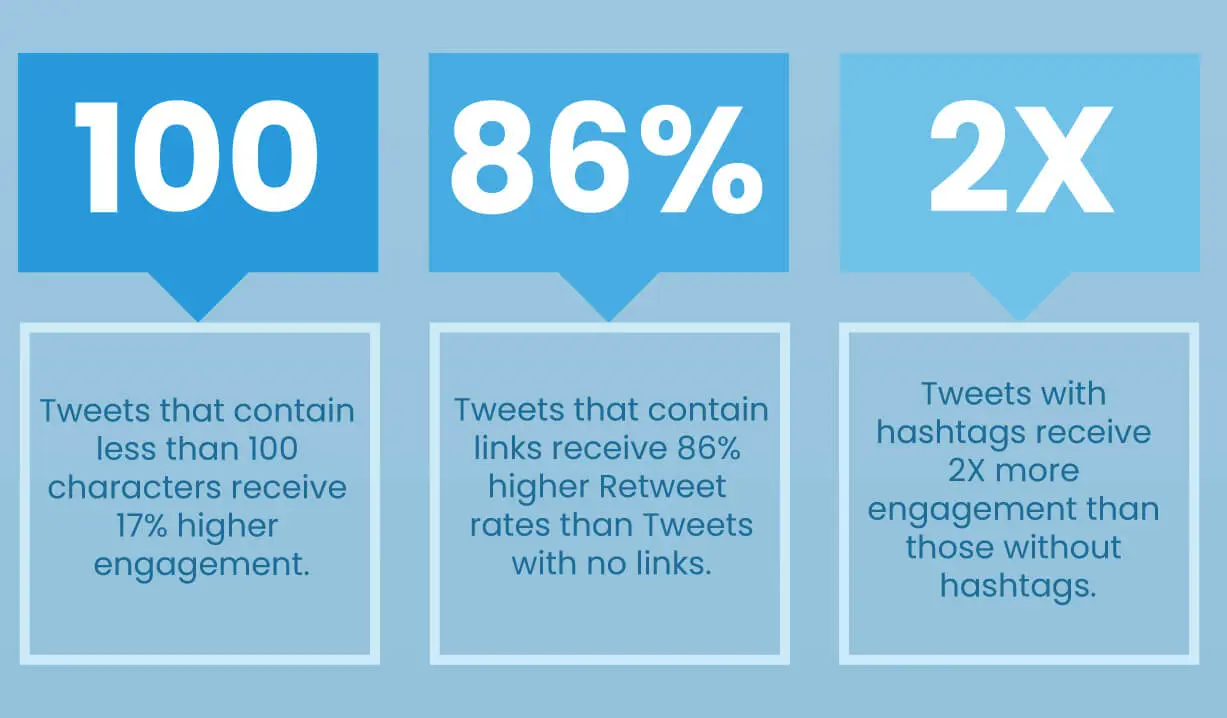
Keyword Grouping And Organisation
Now that you know where to include keywords after keyword research, let’s understand keyword grouping and organisation. It divides keywords into smaller, manageable groups of relevant and related keywords to reduce workload while creating targeted, specific web pages.
Consider, for example, that you’re running the website of an online electronic store. In this scenario, it would be wise of you to group terms related to smartphones and then create a separate group for the terms and phrases related to home appliances.
Next, you’ll have to create sub-groups for each keyword group and even smaller groups for each type of electronic product (e.g., washing machine, phone, air conditioner, etc.). Once this is done, pages and ads for each keyword group and subgroup will be optimised to make them more accessible.
The Best Keywords For SEO
Now that we’ve reached the end of our informative guide, we’d like to share some advice before taking your leave.
Remember that the target audience highly searches for the “best” keywords. And with the help of these, you need to develop a strategy that will help you drive search traffic and rank pages.
We’ve already discussed finding and choosing keywords for your SEO strategy through keyword research. These keyword lists will help you achieve long- and short-term goals while allowing you to stand out from the competition.
But that doesn’t mean all your work is complete. Ensure you re-evaluate these keywords every two months (ideally once every quarter). You could also choose to do keyword research more frequently if needed.
Once your website starts gaining more authority in the SERPs, you can keep adding relevant keywords to your list to grow as a brand in the future while maintaining your current online presence.






